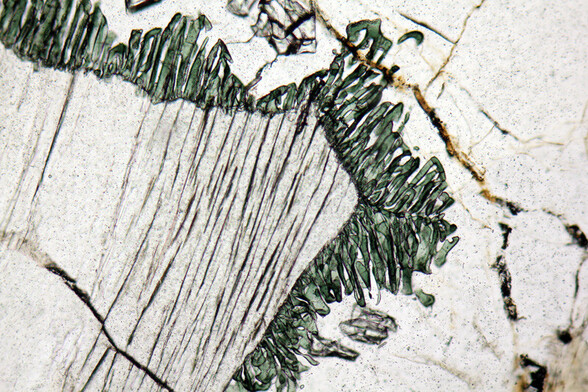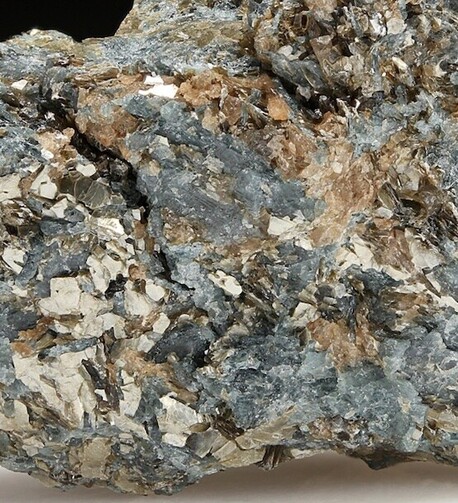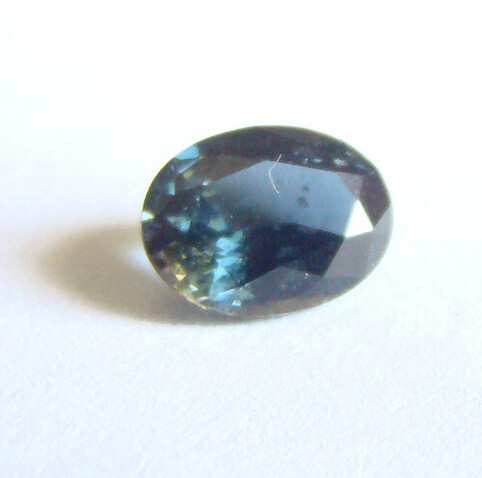Bill Minarik · @silicatefondue
208 followers · 566 posts · Server fosstodon.orgOne more resource before #MinCup23 voting starts: during the pandemic we discovered the http://www.alexstrekeisen.it/ site run by Alessandro Da Mommio (in Italian and English). It's chock-full of sample and thin section photos, well organized.
Blue #sapphirine is well represented: here a reaction texture between sillimanite and cordierite, in thin section.
#mineralogy #thinSection #photography
#mincup23 #sapphirine #mineralogy #thinsection #photography
Bill Minarik · @silicatefondue
204 followers · 549 posts · Server fosstodon.org#Sapphirine has a complicated structure, with Mg in two sites and Al both four-fold and six-fold coordinated. It has only about 15 wt% SiO2.
It has monoclinic symmetry, but still can form attractive crystal faces when it can grow unimpeded. A good example is on the cover of Dexter Perkin’s on-line mineralogy text, found at:
https://opengeology.org/Mineralogy/
In polarized light, sapphirine changes color with orientation (called pleochroism).
#sapphirine #mincup23 #minerals #mineralogy #thinsection
Bill Minarik · @silicatefondue
204 followers · 539 posts · Server fosstodon.orgThe Nuuk area in western Greenland (the type locality of #Sapphirine) is one of the places where sea level is falling! Not only is ice melting, uncovering new rocks and unloading the lithosphere, but the mass of ice that's missing no longer attracts the water, so it recedes. Read more at the Arctic Hub:
https://arctichub.gl/greenland-is-rising-literally/
#MinCup23 #Greenland #Cryosphere #SeaLevel
#sapphirine #mincup23 #greenland #cryosphere #sealevel
Bill Minarik · @silicatefondue
204 followers · 539 posts · Server fosstodon.orgSapphirine's type locality is in western Greenland, south of Nuuk, which is where the mineral was discovered in 1809 by Karl Giesecke.
It was named due to its blue color being similar to sapphire, a different, associated mineral (#corundum, aluminum oxide).
An amazing amount of information can be found about #sapphirine at MinDat:
https://www.mindat.org/min-3531.html
a non-profit mineral data base founded in 2000 by Jolyon Ralph (who is on Mastodon at @jolyon).
#corundum #sapphirine #mincup23 #minerals #greenland
Bill Minarik · @silicatefondue
204 followers · 531 posts · Server fosstodon.orgThe vivid blue mineral #sapphirine is found in meteorites, forming from nebular gas and earlier condensed minerals. It's found on Earth, and likely all terrestrial planets, as a crustal metamorphic mineral (more to come).
Sapphirine is a magnesium aluminum silicate, with iron, chromium, and others substituting.
It's used as a gemstone. This photo is presented in:
https://geo.libretexts.org/Bookshelves/Geology/Gemology
This is an Open Textbook made available by UC Davis, along with many others.
#sapphirine #mincup23 #minerals #geology



